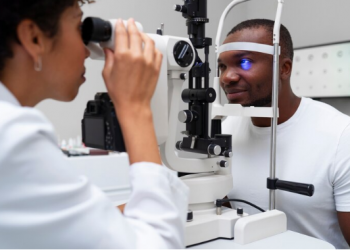
Key Takeaways
- Brain-based methods offer practical insights into therapy, rooted in neuroscience.
- Clients and clinicians benefit from understanding how the brain influences emotions and behaviors.
- Integrating scientific research into counseling boosts effectiveness and fosters positive outcomes.
- Practical tips, ongoing studies, and real-life examples help make these strategies accessible.
Table of Contents
- What Makes Brain-Based Counseling Different?
- The Role of Neuroscience in Therapy
- Real-Life Benefits for Clients
- Techniques and Tools Backed by Research
- Shifting Perspectives in the Mental Health Field
- Tips for Professionals Embracing Brain-Based Methods
- Navigating Common Challenges
- Future Trends in Brain-Based Mental Health Support
What Makes Brain-Based Counseling Different?
Mental health support has long leaned on conventional therapy techniques, but a new wave of brain-based counseling is catalyzing a shift in how people understand and approach care. Unlike approaches focusing mostly on conversation and behavior tracking, brain-based counseling taps into insights about neural function and how the mind, body, and emotions interact. By weaving together the latest findings in neuroscience, these therapists look at the whole person, exploring how networks in the brain directly guide thought patterns and emotions. This evolution gives people who feel stuck or misunderstood new possibilities for growth.
One example is the integration of therapies such as EMDR therapy for anxiety into traditional counseling frameworks. These approaches address trauma and chronic stress by stimulating innate brain processes. People gain real hope by treating the brain’s responses as part of a healable system, not just a permanent flaw. This isn’t just theory; it’s a practical, actionable path supported by thousands of studies. As a result, mental health no longer resides in the shadows of blame or stigma but becomes something everyone can nurture and improve.The Role of Neuroscience in Therapy
Neuroscience has made remarkable breakthroughs that have rippled into how therapy is practiced worldwide. Perhaps most importantly, research has shown that the brain’s ability to change—called neuroplasticity—remains active throughout life. This means even deeply ingrained habits or emotional responses that formed due to trauma, stress, or upbringing can be reshaped with the right intervention. This knowledge reframes struggles from personal weakness to biological processes in the therapy room. People move from “What’s wrong with me?” to “How did my brain learn to protect me this way, and how can I work with it to heal?”
Therapists often translate complex science into relatable, everyday language. For example, discussions may center on how the amygdala acts as an alarm system for danger or how the prefrontal cortex supports rational decision-making and emotional management. Providing clients with these insights fosters a greater sense of agency and reduces shame. Studies tracked by the American Psychological Association reveal that psychoeducation around the brain not only increases clients’ engagement with therapy but also helps them persist through tough stretches of treatment.Real-Life Benefits for Clients
One of the most profound differences clients notice with brain-based counseling is the empowering nature of the process. Rather than a narrow focus on merely “fixing” problems, the emphasis shifts to understanding the brain’s responses to stress and adversity. These responses, which evolved as protective mechanisms, can be unhelpful in modern contexts. For individuals experiencing panic attacks, recognizing that their body’s threat system is functioning as intended—despite the current danger being psychological—can be a transformative realization. It reinforces the notion that they are not weak; they are simply human beings navigating complex experiences.
This neurobiological approach, combined with responsive therapeutic techniques, makes recovery feel less intimidating. As clients articulate their experiences—such as racing thoughts, muscle tension, or feelings of disconnection—they experience less isolation and shame, fostering a greater commitment to therapy even when progress is gradual. Moreover, when families and communities are educated about these brain-based concepts, they contribute to a supportive culture that enhances overall well-being, creating a ripple effect that benefits everyone involved.Techniques and Tools Backed by Research
There is an impressive and expanding toolbox of strategies grounded in brain science, each offering evidence-based support for a wide array of psychological and emotional challenges. Professionals increasingly utilize cognitive behavioral techniques, which are well-documented for their ability to alter neural pathways in the brain, often in conjunction with body-oriented practices such as grounding exercises and somatic therapies aimed at enhancing body awareness. Techniques like mindfulness meditation, deep breathing exercises, and visualization practices play a crucial role in activating the calming effects of the parasympathetic nervous system, thereby promoting relaxation and emotional regulation. Additionally, movement therapies have been shown to enhance interconnectivity within brain regions associated with attention, self-control, and emotional well-being.
More advanced therapeutic interventions, such as Eye Movement Desensitization and Reprocessing (EMDR), neurofeedback, and somatic experiencing, are also gaining wider acceptance among mental health professionals. These methods extend the therapeutic process beyond traditional talking therapies, employing mechanisms like rhythmic eye movements, real-time biofeedback, and kinesthetic sensations to assist the brain in ‘unlearning’ maladaptive patterns and reinforcing healthier behaviors. Recent research from the National Institutes of Health highlights the effectiveness of these science-based therapeutic modalities, demonstrating their correlation with improved brain function and a reduction in symptoms related to anxiety, depression, and trauma. As scientific evidence continues to mount, a growing number of clinicians are integrating these practical, evidence-supported strategies into their therapeutic practices, offering their clients innovative pathways to healing and personal development.Shifting Perspectives in the Mental Health Field
The rising influence of neuroscience has significantly transformed therapeutic practices, extending its impact beyond individual treatment sessions to influence professional and cultural attitudes toward mental health recovery. Training programs for mental health practitioners now prioritize understanding the effects of trauma on the nervous system, equipping therapists with skills to recognize and address physical symptoms in addition to emotional and cognitive experiences. This shift in understanding aligns with contemporary neuroscience research, which reveals that the brain possesses a remarkable ability to repair and rewire itself. This insight dismantles older paradigms that viewed adverse experiences as causing irreversible damage to individuals.
For clients, this emerging framework can provide profound relief. Rather than seeing therapy as a series of failures or defects that need to be “corrected,” individuals learn that setbacks are a natural and expected part of the learning process—much like the stages involved in relearning a language or mastering a sport. This acknowledgment fosters resilience, encourages perseverance, and promotes a greater sense of self-compassion among clients. Ultimately, the holistic and brain-based approaches adopted by the field contribute to the emergence of more optimistic and empowering recovery narratives, highlighting the potential for growth and healing in the aftermath of challenges.Tips for Professionals Embracing Brain-Based Methods
- Stay Informed: Review peer-reviewed journals, research articles, and current neuroscience findings relevant to counseling and therapy. The landscape of brain-based interventions is rapidly evolving, and up-to-date knowledge leads to more effective care.
- Prioritize Practical Tools: Incorporate techniques like guided imagery, breathwork, grounding, and mindfulness into daily sessions. Gathering feedback from clients about what feels most beneficial encourages collaboration and improvement.
- Encourage Questions: Invite clients to share their curiosity, confusion, and observations about their symptoms and the science behind the techniques. Fostering a sense of partnership in learning empowers both therapist and client.
- Demystify the Brain: Translate medical or psychological terms into clear, everyday language. Use visuals, stories, or metaphors—like likening the amygdala to a smoke alarm—to help everyone understand what’s happening in the brain during stress or healing.
Navigating Common Challenges
Integrating brain-based care offers numerous benefits, such as enhanced understanding of mental health issues and improved treatment outcomes. However, it also presents several challenges that practitioners must navigate. Each client presents unique psychological and emotional needs, meaning that not all interventions will resonate equally with every individual. For instance, clients may feel overwhelmed or intimidated by complex scientific terminology, and some might become discouraged if they do not see immediate results.
Additional barriers include educational gaps among clinicians regarding the latest neuroscience research, the time constraints typical in healthcare settings, and the prevalence of misinformation online, which can skew client perceptions of brain-based therapies. Successfully implementing brain-based care requires professionals to remain attuned to each client’s individual circumstances, blending evidence-based practice with essential qualities such as warmth, adaptability, and cultural humility.
Building trust with clients is fundamental to this process. Real progress is achieved when empirical science is combined with a strong therapeutic alliance—when clients feel acknowledged as complete individuals rather than merely as collections of symptoms or diagnoses. By maintaining a balance between scientific understanding and personal connection, professionals can effectively guide clients through challenging times, helping them navigate uncertainty and create a sustainable path toward long-term improvement.Future Trends in Brain-Based Mental Health Support
Looking ahead, technology is poised to significantly transform brain-based mental health support by introducing advanced therapeutic options. Emerging innovations such as virtual reality therapies, which immerse users in controlled environments to confront fears or practice social skills, combined with neurofeedback wearables that train brain function for self-regulation, and smartphone applications designed for mindfulness and emotional regulation, are making mental health support more accessible and personalized than ever before. These technological tools not only enhance in-person counseling by reinforcing neural learning and promoting self-awareness between sessions but also offer scalable solutions for individuals facing barriers to traditional therapy, including those with mobility challenges, those living in rural areas with limited access to services, and even those who may prefer digital formats for privacy and convenience. As research in neuroscience and psychology accelerates, there is an increasing expectation that new discoveries will continue to demystify complex brain processes and yield more effective, inclusive mental health care interventions. Clinical best practices are likely to evolve dynamically, grounded in compassion, empirical evidence, and patient-centered care. The future of brain-based counseling thus holds the promise of personalized, science-guided mental health strategies, enabling a broader range of individuals to experience meaningful, lasting improvements in their emotional well-being and overall quality of life.







